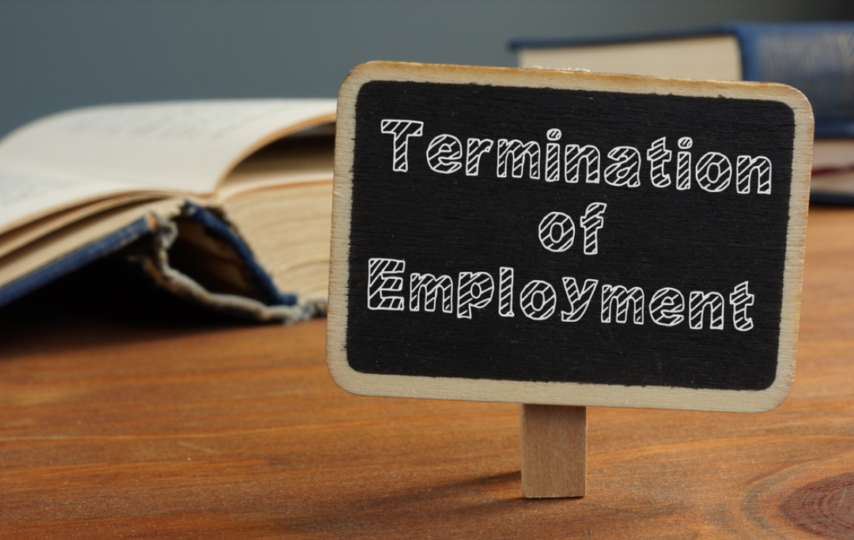Losing your job unfairly can be a huge blow, and your ex-employer may make it seem like there’s nothing you can do. However, very often unscrupulous employers bank on their employees not knowing their rights to get away with serious violations of employment law. Wrongfully terminated employees may find that they have a stronger case than they thought and could end up with a sizable settlement. Is it time to contact an employment lawyer? Read on to learn the ins and outs of filing a wrongful termination suit.
Ask an Employment Lawyer: How Can You Make a Case for Wrongful Termination?
What is “At-Will” Employment?
One of the most common phrases you’ll hear when discussing employment law is at-will employment. This is the most common type of employment nationwide, and it essentially means that an employer can terminate your employment without reason or prior warning, provided they do not violate anti-discrimination laws, which protect against termination due to race, gender, age, or disability, and other factors. In every state except Montana, employment is assumed to be at-will unless there’s a specific contract in place.
Conversely, it also means that an employee can quit a job without reason or notice and cannot be penalized for doing so. It’s worth noting that if you quit at-will employment without notice, you still must be paid for the hours you have worked. For example, an employer cannot legally withhold or dock your last paycheck if you fail to give two weeks’ notice – you must be compensated fairly for the time you have worked.
When is Termination Illegal?
Essentially, wrongful termination is when you are fired, laid off, or forced to resign in a manner that violates your rights. The most common grounds for wrongful termination are discrimination and retaliation, but breach of employment contract and violation of public policy are also common occurrences. For example, many sexual harassment-related claims involve retaliation. Your employer cannot fire you for reporting harassment, filing a complaint, or even for testifying in another employee’s suit – it’s against federal law.
When it comes to discrimination, employers cannot terminate your employment due to a “protected characteristic”, which includes factors such as your sex, race, religion, color, national origin, ancestry, age, and any disabilities you might have. These characteristics are protected under federal law, but some states such as California have extended protection to others, such as marital and veteran status. It is also accepted through case law that sexual orientation is a federally protected characteristic under the civil rights act, despite not being explicitly mentioned in the act itself.
Steps to Filing a Wrongful Termination Claim
If you think your employment has been terminated illegally, then it’s important to move quickly. Depending on the state and the grounds for your suit, there may be a statute of limitations on your claim, and missing the deadline could get your case thrown out. While the exact steps will vary in each individual case, below are the most common steps you’ll need to take to file your claim.
1. Talk to a Lawyer in Your State
The first and most important step you need to take is contacting an employment lawyer near you who specializes in employment law. For example, if you live in Kansas City, MO it’s best to contact a Kansas City-based workplace discrimination lawyer who’ll know the appropriate laws for Missouri.
2. Write Down Details of Your Termination
As soon as you can, write down all the details about how you were terminated. It’s best to do this as soon as you can, while they’re still fresh in your mind. If you can, save a backup of your work emails before you’re locked out of the system, especially any messages related to your termination.
3. Gather Documents to Prove Employment
One of the most important parts of your suit will be determining that you were actually employed by the company you’re suing, and which type of employment you worked under. As mentioned above, this is most likely to be at-will employment, unless you signed a specific contract stating otherwise.
You’ll also need to be sure that you were actually an employee – many companies such as Amazon and Uber are very careful to ensure that the people working for them aren’t employees. Instead, they are classed as “self-employed contractors,” even if they can’t work for anyone else. This handily circumnavigates employment laws and makes a wrongful termination suit nearly impossible.
4. Start Looking for a New Job
It’s important to get back on the horse and start looking for a new job as soon as you can, not only for your mental and financial wellbeing but also because it can affect your claims for lost earnings; the court will look kindly on attempts by you to mitigate your losses.
Losing your job is one of the worst experiences that can happen to someone, but it doesn’t mean that all is lost. Talk to an employment attorney as soon as possible – most will offer a free consultation and can offer specific legal advice to you.
Also Visit: A Guide to Buying a Stainless Farm Sink








